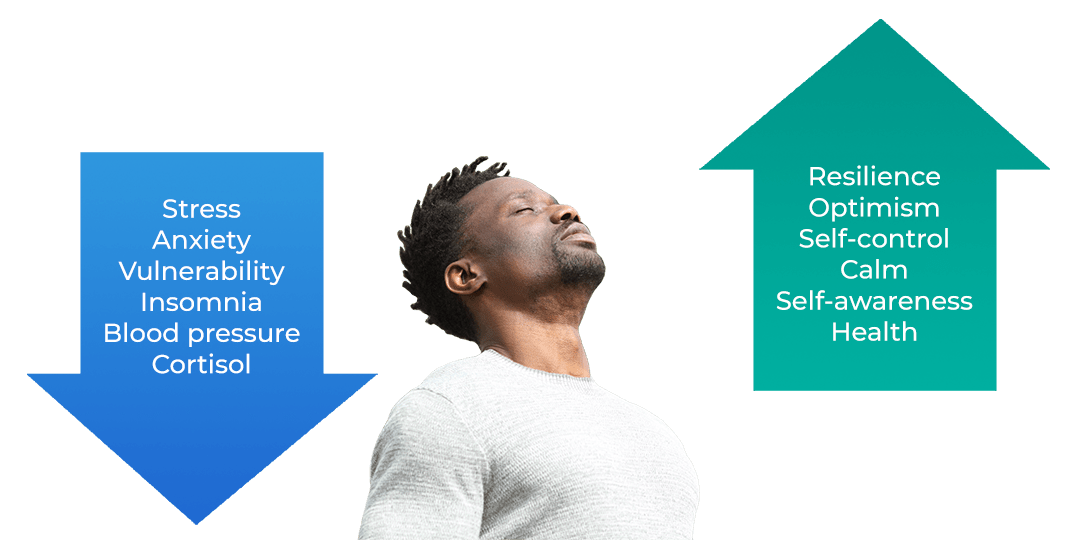Deep breathing works because it signals your nervous system that you are safe and it can relax.
In response, your nervous system releases a cascade of neurotransmitters that rapidly trigger physiological changes such as lowering your heart rate, reducing your blood pressure and lowering your cortisol.
We experience these changes (in the mind) as a deep sense of calm and clarity.
Now, the body will naturally reset into a calm and relaxed state after a stressful event. But for many of us, our ability to recover from stress has been compromised.
We just don’t bounce back like we used to. This is because stress is so pervasive and just like playing the piano, our resilience erodes without practice
If this sounds like you, carefully structured deep breathing is a scientifically proven method for restoring your resilience — your ability to quickly recover from stress.


